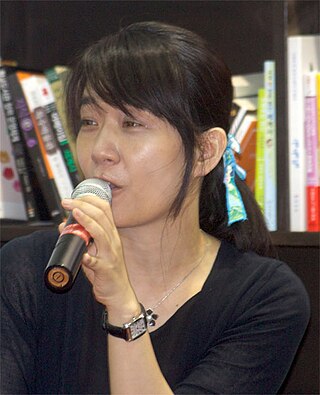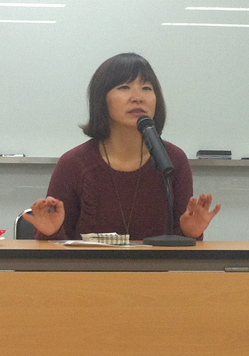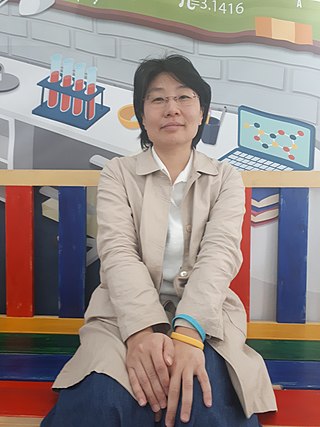
Afag Masud is an Azerbaijani writer, and playwright. She has been honored with the title of People’s Writer, Honored Art Worker, a full member of Peter’s Academy of Art and Science, a full member of European Academy of Sciences, Arts and Literature, member of the Georgian Writers Association? Board Chair of the Azerbaijan Translation Centre, and editor-in-chief of the “Khazar” World Literature Magazine. playwright, Honored Art Worker, "Humay" award winner, Chief editor of "Khazar" world literature magazine.

Gong Jiyeong is a South Korean novelist.
Takako Takahashi was a Japanese author. Her maiden name was Takako Okamoto.

The Literature Translation Institute of Korea was founded in 1996 by the Government of South Korea with the aim of promoting Korean literature and culture overseas.

Park Wan-suh was a South Korean writer.

Han Kang is a South Korean writer. She won the Man Booker International Prize for fiction in 2016 for The Vegetarian, a novel about a woman's descent into mental illness and neglect from her family. The novel is also one of the first of her books to be translated into English.

Kyung-Sook Shin, also Shin Kyung-sook or Shin Kyoung-sook, is a South Korean writer. She was the only South Korean and only woman to win the Man Asian Literary Prize in 2012 for Please Look After Mom.
Park Min-gyu (Korean: 박민규) is a South Korean writer.
Lee Seung-u is a South Korean writer.

Eun Heekyung is a South Korean writer.
Pyun Hye-young is a South Korean writer.
Kwon Yeo-sun is a South Korean writer.
Yi Kyoung-ja is a South Korean author whose work focuses on the position of women in Korean society.

Huzama Habayeb ) is a Palestinian novelist, storyteller, columnist, translator, and poet who has won multiple awards such as Mahmoud Seif Eddin ِAl-Erani Award for Short Stories, Jerusalem Festival of Youth Innovation in Short Stories, and Naguib Mahfouz Medal for Literature. Upon graduating from Kuwait University in 1987 with a Bachelor of Arts in English language and Literature, she pursued careers in journalism, teaching, and translation before she eventually started to write professionally as a published author. She is a member of both the Jordanian Writers Association and the Arab Writers Federation.

The Vegetarian is a South Korean three-part novel written by Han Kang and first published in 2007. Based on Han's 1997 short story "The Fruit of My Woman", The Vegetarian is set in modern-day Seoul and tells the story of Yeong-hye, a part-time graphic artist and home-maker, whose decision to stop eating meat after a bloody, nightmarish dream about human cruelty leads to devastating consequences in her personal and familial life.
Deborah Smith is a British translator of Korean fiction. She translated The Vegetarian by Korean author Han Kang, for which she and the author were co-winners of the Man Booker International Prize in 2016.

Kim Sum is a South Korean writer, best known as the author of One Left, a novel dealing with the issue of Korean comfort women in the Imperial Japanese Army.
Sora Kim-Russell is a Korean American writer and translator from California, currently residing in Seoul. She received an MA in East Asian Studies from Stanford University and has translated a number of prominent Korean writers, including Hwang Sok-yong, Pyun Hye-young, and Jeon Sungtae. Her translation have appeared in outlets such as the New Yorker and Harper's Magazine. Among other accolades, her translation of Hwang Sok-young's At Dusk (해질무렵) was longlisted for the 2019 International Booker Prize.

Kim Bo-young is a South Korean science fiction writer based in Gangwon Province, South Korea. In addition to her novels and short story collections, she has worked as a script advisor for Bong Joon-ho's Snowpiercer in 2013. She is the first Korean science fiction author to be published by HarperCollins.

Katja Oskamp is a German writer. She won the 2023 International Dublin Literary Award.













